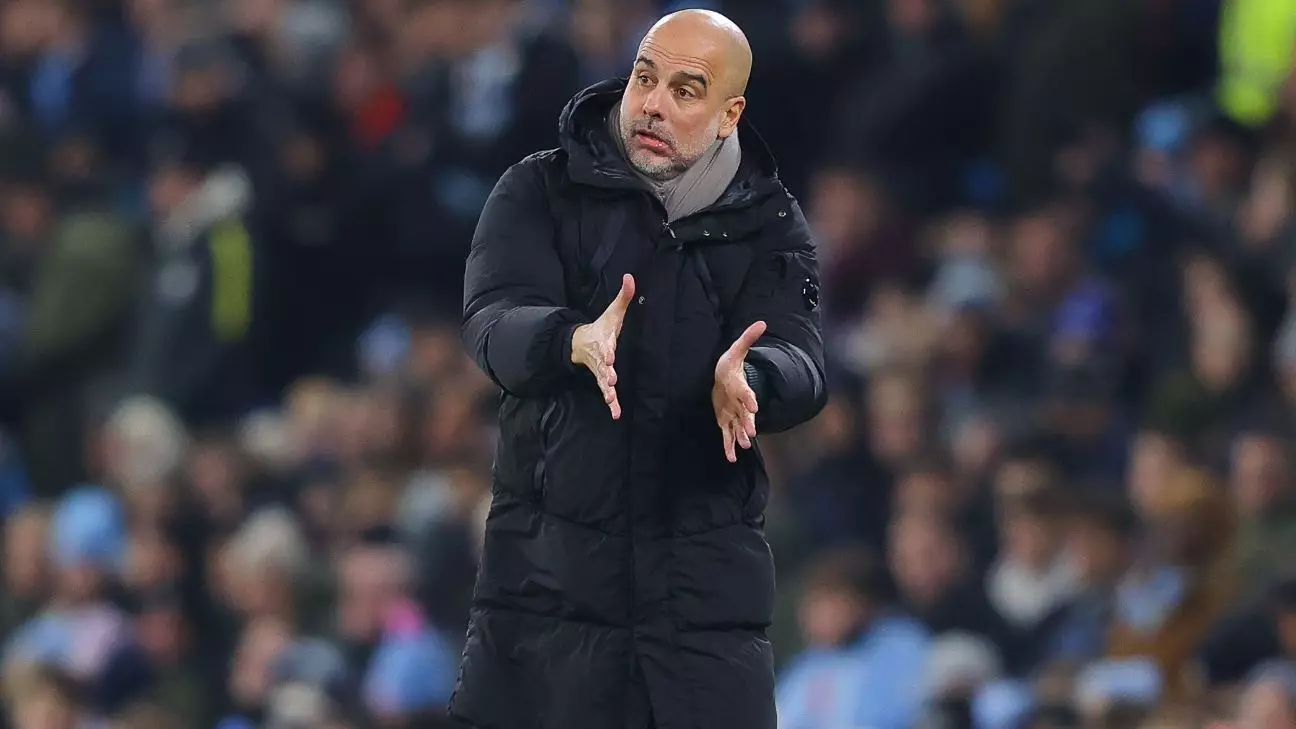The tale of Manchester City’s early season struggles has echoed through the footballing world, and it seems their head coach, Pep Guardiola, holds himself partially accountable. After a summer where he opted against significantly altering his squad, Guardiola has now expressed regret over that decision, acknowledging the weight that injuries have carried in their disappointing start to the season. This revelation not only highlights the unpredictable nature of football but also shines a light on the strategic considerations that coaches must navigate throughout their careers.
Guardiola has indicated that the team is now seeking to incorporate new talent in the upcoming January transfer window. The acquisition of Abdukodir Khusanov from Lens has been reportedly confirmed, with further interest in Eintracht Frankfurt’s Omar Marmoush. These moves manifest a reactive strategy, a necessity born from the wave of injuries that have decimated the squad since the campaign began. Guardiola’s admission that he could have benefitted from bolstering his team earlier reflects the harsh realities of managing a high-stakes football club amid unexpected challenges.
Looking back at the preceding summer, Guardiola’s assertion that he opted against signings resonates with fans who question the wisdom behind this strategy. He relayed, “I always said in the summer time — the club thought about doing it — and I said: ‘No, I don’t want to make any signings.'” This statement underscores a commitment to his existing players, showcasing trust and a belief in their capabilities. However, trust alone cannot replace the importance of squad depth, particularly when injuries start to infiltrate the ranks.
The return of Ilkay Gündogan and the signing of Savinho were insufficient to replace the missing pieces as injuries mounted. Guardiola’s optimism proved to be misplaced when the squad’s resilience was tested by physical setbacks. This season has thus served as a vivid illustration of the fragile balance between confidence in one’s squad and the necessity for adaptability and foresight in the rapidly changing dynamics of football.
As Manchester City prepares for an upcoming clash against Brentford, Guardiola faces further off-field challenges regarding player retention. The uncertainty surrounding club captain Kyle Walker’s potential move to AC Milan adds another layer of complexity. Walker, a pivotal figure within City’s defense, has expressed an interest in exploring opportunities abroad, leaving Guardiola in a precarious position.
In addition, the prospect of losing talented player James McAtee to a foreign club highlights the ongoing battle to maintain core players amidst a backdrop of growing international interest. Guardiola’s wishes for these players to remain part of the City project reflect his larger vision for the club. Yet, the unpredictability of football decisions can heavily shape a team’s structure and performance.
Guardiola’s reflections prompt a broader conversation about the interplay between management decisions and squad dynamics. The realization that caution in the transfer market can lead to critical setbacks is something many coaches grapple with. It remains to be seen how the January transfer window will reshape Manchester City’s ambitions, but Guardiola’s past choices are a reminder of the importance of proactive planning in a sport where every match can tilt the balance of a season.

